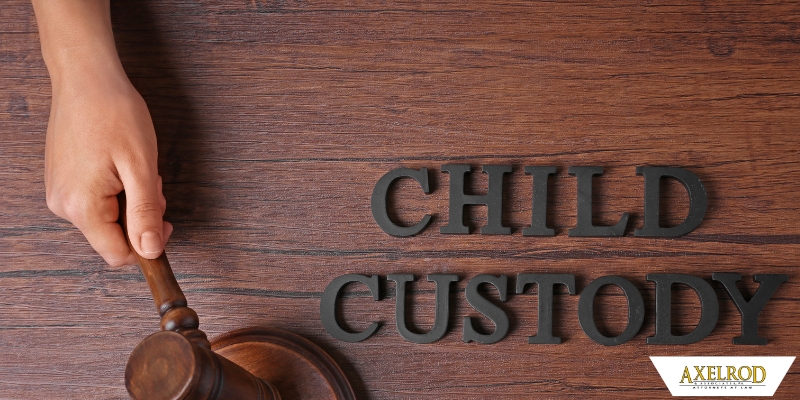4701 Oleander Drive, Suite A
Myrtle Beach, SC 29577
4701 Oleander Drive, Suite A
Myrtle Beach, SC 29577
Myrtle Beach Child Custody Lawyer
Child Custody & Visitation Attorney in Myrtle Beach, SC
The most difficult and emotionally explosive aspect of divorce proceedings is often child custody and visitation.
Most parents will agree that one of their primary concerns during a divorce is to minimize any collateral damage to their children’s mental and emotional health. Although most parents will agree that a child’s safety and well-being are paramount, they may not agree on what that means.
During these emotional times, it is important to have an attorney to represent you in family court. When you have someone to advocate for you and your children, you can help to shape the future of your family structure and create a child custody or visitation agreement that works for you. By hiring an attorney, you can make sure that your parental voice is heard by the court.
Your SC divorce lawyer will help you to determine which custody and visitation arrangements will meet your goals, what the Court will ultimately say is in the child’s best interest, and what evidence you will need to gather to make your case to the family court in a contested case.
Experienced Myrtle Beach, SC Child Custody Lawyer
Like many other states, South Carolina uses the “best interest of the child” standard in determining child custody. Although the list is not exclusive, the factors the courts use to decide child custody may include:
- The overall circumstances of each parent (i.e. living situation, employment, etc.)
- The spiritual/emotional upbringing of the child
- The child’s preference (depending on the age of the child)
- The child’s physical and emotional welfare with each parent
- Anything relevant to the primary caretaker
The authority over the child’s medical, educational, and other life-decisions is almost always shared equally by both parents. Absent extraordinary circumstances, most parents will also share legal custody and participate in important decisions regarding the child’s upbringing.
Physical custody, however, can be allocated in different ways depending on the circumstances. Physical custody may be primarily with one parent or the other, or may be divided between the parents depending on what is best for the child.
Once a custody arrangement has been ordered by the Court, both parents must comply with the order – however, if there are changes in circumstances, one or both parents can return to court and custody can be modified.

Child Visitation in South Carolina
Although child custody is usually placed primarily with one parent or the other, there must be rules as to how and when visitation occurs with the non-custodial parent.
Visitation rights can and should be agreed upon between the parties; however, when an agreement cannot be reached, the Court will determine how and when visitation will occur.
If either parent is not complying with the court’s order, a parent may return to court and ask the court to enforce their visitation rights. Also, if there is a significant change in circumstances, either parent can request that the Court modify the visitation rights.
Grandparents’ Visitation Rights in SC
Grandparents don’t have much legal recourse when it comes to enforcing visitation rights with their grandchildren in SC.
However, under very limited circumstances, South Carolina law allows for enforcement of grandparent’s visitation rights, under S.C. Code Section 63-3-530 (33), when:
- The child’s parents or guardians are unreasonably depriving the grandparent of the opportunity to visit with the child, including denying visitation of the minor child to the grandparent for a period exceeding ninety days
- The grandparent maintained a relationship similar to a parent-child relationship with the minor child
- Awarding grandparent visitation would not interfere with the parent-child relationship; and the court finds by clear and convincing evidence that the child’s parents or guardians are unfit
- The court finds by clear and convincing evidence that there are compelling circumstances to overcome the presumption that the parental decision is in the child’s best interest.
If you are a grandparent in SC who is being denied visitation rights with your grandchild, and your situation fits the above requirements, call your domestic law attorney at Axelrod & Associates to find out what your options are and how we can help.
FAQs About Myrtle Beach, SC Child Custody Law
How Much Is a Custody Lawyer in SC?
The cost of a custody lawyer varies depending on the severity of your case and how long your attorney believes it will take. Many attorneys charge hourly rates, while others charge a flat rate for the case. Be sure to discuss your lawyer’s rates with them before officially hiring them. This ensures that you can afford their services throughout your case and gives you the highest likelihood of achieving a desirable custody agreement.
Can a Father Get Full Custody in SC?
Yes. The court does not grant custody based on their gender. The court looks at which parent will best care for the children and provide a safe and happy home for them. If the father is best suited for this task full-time, then the court will grant the father full custody. If the mother is best suited, she will get full custody. If both parents are equally suited to caring for the children, the court will grant joint legal custody.
How Is Child Custody Determined in South Carolina?
The court decides child custody arrangements based on what is best for the children. In fact, this is the only factor that the law considers. The court will look at each parent’s income, free time, housing situation, mental health history, relationship to controlled substances, and other similar criteria to determine custody. If both parents can provide an equally stable and supportive household, joint custody will likely be granted.
Is SC a 50/50 Custody State?
The most common custody arrangement in South Carolina is a primary custodial parent with the other parent having visitation rights. For example, one parent may care for the children most of the time, but the other parent gets to spend time with them every other weekend. South Carolina is not a 50/50 community property state. The courts look at the individual situation to decide what is best rather than using a standard arrangement for custody and property division.
What Is Considered an Unfit Parent in SC?
An unfit parent is one who is unable to give their children the guidance, care, attention, and support that are necessary for healthy growth and development. Substance abuse, neglect, domestic violence, and other similar behaviors may render a parent unfit to have legal custody of their children.
At What Age Can a Child Make a Custody Decision in South Carolina?
When a child is old enough to make an independent, informed opinion about who they would like to live with, the court will take their feelings into account. Usually, this is between the ages of 12 and 14. The court must be sure that the child is not being coerced or forced into a custody arrangement that is not in their best interest.
GOT AXELROD?
If you need help getting custody of your children or visitation with your children, modifying or enforcing a family court order, or if you are a grandparent who is being denied visitation with your grandchildren, call your family law attorney at Axelrod & Associates today at 843-353-3449 or complete our contact form to set up an initial consultation.
Need help? Contact Axelrod & Associates, P.A.

Request your
Consultation
The fields marked with * are mandatory.






